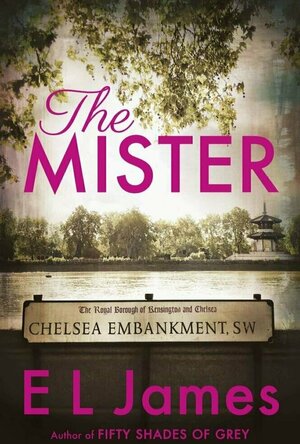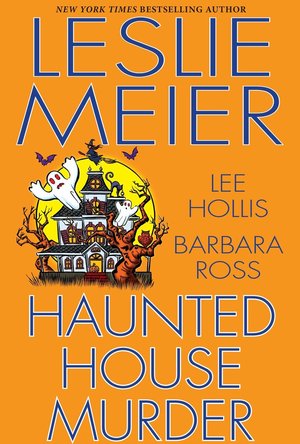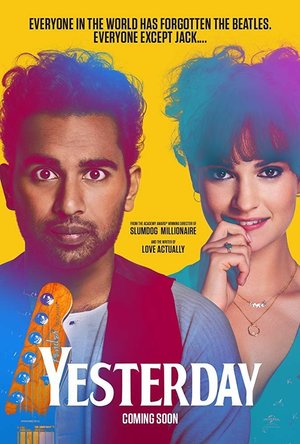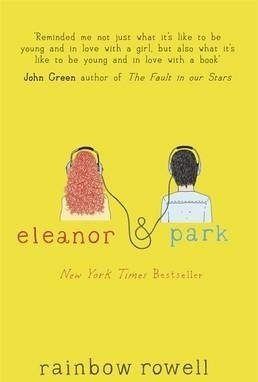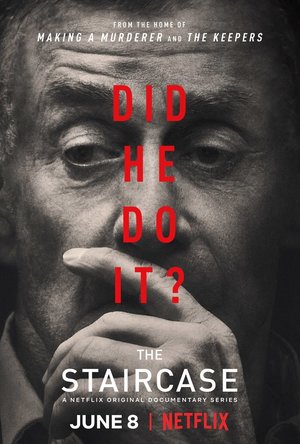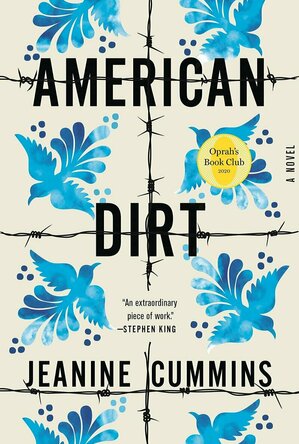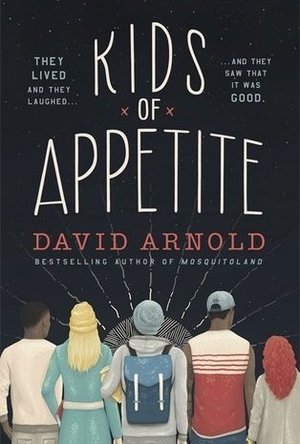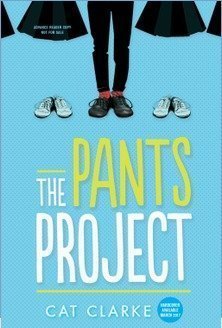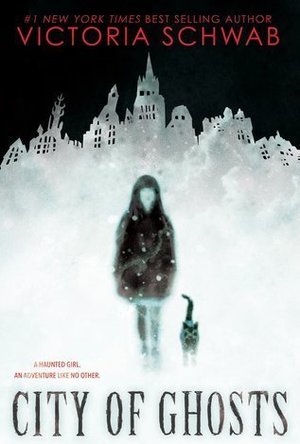Search
Search results
Alison Pink (7 KP) rated Second Nature in Books
Jan 15, 2018
Oh my gosh! This is the first book I've ever read of Jacquelyn Mitchard's & all I can say is WOW!!! I adored this book from the very first chapter! It was funny & heartbreaking, weak & strong, tender & harsh all at once.
Second Nature tells the story of Sicily Coyne. It begins by telling you about the day her life changed forever, she was 10. A fire broke out at her church trapping children inside. Who should rush in to save them but her father? She survives, kind of. But her dad isn't so lucky. I say she sort of survives because she is alive, but her face has literally been burned off of her.
She spends 13 years basically in hiding because she is so scarred. Then a chance phone conversation dramatically changes her life again.
The book really gets going from that point on Sicily, having faced the worst scenarios life can throw at someone, is once again faced with a life altering choice. The story centers around her choice & the way it impacts her & the lives of the people she surrounds herself with. This story was incredibly moving! It is almost too horrific to even be believable, but I still found myself rooting for her through the entire thing. You can't help but love her & yes, even envy her at times in this book.
She is truly one of those characters that is unforgettable. A strong, determined woman even when it seems like the entire world is out to get her.
Second Nature tells the story of Sicily Coyne. It begins by telling you about the day her life changed forever, she was 10. A fire broke out at her church trapping children inside. Who should rush in to save them but her father? She survives, kind of. But her dad isn't so lucky. I say she sort of survives because she is alive, but her face has literally been burned off of her.
She spends 13 years basically in hiding because she is so scarred. Then a chance phone conversation dramatically changes her life again.
The book really gets going from that point on Sicily, having faced the worst scenarios life can throw at someone, is once again faced with a life altering choice. The story centers around her choice & the way it impacts her & the lives of the people she surrounds herself with. This story was incredibly moving! It is almost too horrific to even be believable, but I still found myself rooting for her through the entire thing. You can't help but love her & yes, even envy her at times in this book.
She is truly one of those characters that is unforgettable. A strong, determined woman even when it seems like the entire world is out to get her.
Whatchareadin (174 KP) rated The Mister in Books
Jun 21, 2019
Alessia Demachi has left her country of Albania in order to avoid being married to a violent man and is now in London. She is working for Maxim Trevelyan as his cleaner. She comes and does her job and then leaves. When she first spots Mister Maxim naked across his bed, she can't believe her eyes. And he has this wonderful piano in his apartment that she enjoys playing when he is not there. But life is not easy for Alessia and she is constantly looking over her shoulder so she is not found by the people who brought her here and are trying to traffic her.
Maxim has just lost his brother and inherited the keys to the Earldom. This is not the life he wanted, but it is the life he now has. When he meets Alessia, he is at first shocked, since he didn't know she was now working for him and then intrigued by her beauty. Will he be able to maintain the employer/employee relationship, or will this develop into something else?
I know this book isn't a literary masterpiece, but for the most part, I enjoyed it. I wanted to know what was going to happen and when. I liked this a little better than Fifty Shades since it didn't have all the BDSM associated with it. If you like 50 Shades, you should like this one too.
One of my biggest problems with this book is that the main character's name is so much like my daughter's. Other than that, it was a quick read.
Maxim has just lost his brother and inherited the keys to the Earldom. This is not the life he wanted, but it is the life he now has. When he meets Alessia, he is at first shocked, since he didn't know she was now working for him and then intrigued by her beauty. Will he be able to maintain the employer/employee relationship, or will this develop into something else?
I know this book isn't a literary masterpiece, but for the most part, I enjoyed it. I wanted to know what was going to happen and when. I liked this a little better than Fifty Shades since it didn't have all the BDSM associated with it. If you like 50 Shades, you should like this one too.
One of my biggest problems with this book is that the main character's name is so much like my daughter's. Other than that, it was a quick read.
Mark @ Carstairs Considers (2496 KP) rated Haunted House Murder in Books
Aug 30, 2019
Cozy Halloween Hauntings
This collection of three novellas focuses on Halloween. The book opens with the title story featuring Leslie Meier’s protagonist Lucy Stone. A couple has moved into the old abandoned house in town, but they are rebuffing efforts from Lucy and others to welcome them to town. Then strange things start happening and rumors start flying. What is happening? Up next is “Death by Haunted House” by Lee Hollis which takes up back to 2009 and shows us what life was like for Hayley Powell while she was married. When the house next door, which is rumored to be haunted, gets a new family, Hayley’s husband Danny is certain that they are up to something. The discovery of a dead body in the nearby woods just confirms his theory – at least to himself. Is he right? Finally comes “Hallowed Out” from Barbara Ross. The local Haunted House tour is gearing up for Halloween, trying to bring some more people to town in the fall. However, when a reenactment of a crime leaves an actor dead, Julia Snowden must figure out what happened.
As you might expect in a collection of stories by various authors, some are stronger than others. Personally, I found the opening story to be the weakest – I think it might have worked as a short story, but even as a novella is was too long. The middle story was better, with some fun scenes and a good twist to the mystery. I adore Barbara Ross’s Maine Clambake mysteries, so it was the reason I picked up the book. It also means I found the third story to be the best, with some good twists and a very fun sub-plot. While each story has plenty of fall atmosphere, these stories aren’t that spooky – they are by cozy mystery authors after all. Still, fans of these authors will enjoy picking up the book.
As you might expect in a collection of stories by various authors, some are stronger than others. Personally, I found the opening story to be the weakest – I think it might have worked as a short story, but even as a novella is was too long. The middle story was better, with some fun scenes and a good twist to the mystery. I adore Barbara Ross’s Maine Clambake mysteries, so it was the reason I picked up the book. It also means I found the third story to be the best, with some good twists and a very fun sub-plot. While each story has plenty of fall atmosphere, these stories aren’t that spooky – they are by cozy mystery authors after all. Still, fans of these authors will enjoy picking up the book.
James P. Sumner (65 KP) rated Yesterday (2019) in Movies
Jul 18, 2019
The best British film in years!
Despite not really being a fan of The Beatles or their music, when I first saw the trailer for this at the start of the year, I was genuinely intrigued by the concept. An aspiring musician (and huge Beatles fan) is hit by a bus during an inexplicable global blackout, only to wake up to a world in which The Beatles seemingly never existed. As the only one who remembers their songs, he releases them as his own and conquers the music world.
The trailer did a good job of letting you know what to expect without giving too much away, believe it or not. There are a few twists and turns along the way, which were a nice surprise. Ultimately, this IS a British rom-com underneath it all, and the final third is as predictable as every other film in the genre.
Yet this film oozes charm and whimsicality, and sets itself apart from everything that's come before it. Say what you want about Love Actually, but for me, that was the last British film to really make a splash on this level - which was 16 years ago!
The script is amazing. No scene feels unnecessary. No dialogue feels pointless. Richard Curtis, yet again, proves he's a true master of his craft. The lead roles are perfectly cast. Lily James, in particular, puts in another great performance, showing she's worthy of more heavyweight roles (although she's definitely found her niche in this type of film).
What I really loved about this film was how thought-provoking it was. Relative newcomer, Himesh Patel's portrayal of Jack Malek is spot-on, playing with your own emotions and morals, forcing you to ask yourself if you could remain as grounded and humble as he did if something like this happened to you. Despite being over the top at times, it all felt surprisingly real. I can imagine this is exactly how it would play out if something like this were to happen to someone - the media frenzy, the explosion of popularity online, the whirlwind of life-changing moments...
The film is about big moments in your life, and what you choose to do with them when they happen. It's about chasing your dreams and what you would do if you caught them. It's about how to follow your heart when it wants two things at once. I left the cinema smiling, but also genuinely thinking about my entire outlook on life.
Danny Boyle has done an excellent job with this film, and it deserves to go down as one of the best British films in recent years. Whether you're a fan of the music or not, this should not be missed. Near perfect!
The trailer did a good job of letting you know what to expect without giving too much away, believe it or not. There are a few twists and turns along the way, which were a nice surprise. Ultimately, this IS a British rom-com underneath it all, and the final third is as predictable as every other film in the genre.
Yet this film oozes charm and whimsicality, and sets itself apart from everything that's come before it. Say what you want about Love Actually, but for me, that was the last British film to really make a splash on this level - which was 16 years ago!
The script is amazing. No scene feels unnecessary. No dialogue feels pointless. Richard Curtis, yet again, proves he's a true master of his craft. The lead roles are perfectly cast. Lily James, in particular, puts in another great performance, showing she's worthy of more heavyweight roles (although she's definitely found her niche in this type of film).
What I really loved about this film was how thought-provoking it was. Relative newcomer, Himesh Patel's portrayal of Jack Malek is spot-on, playing with your own emotions and morals, forcing you to ask yourself if you could remain as grounded and humble as he did if something like this happened to you. Despite being over the top at times, it all felt surprisingly real. I can imagine this is exactly how it would play out if something like this were to happen to someone - the media frenzy, the explosion of popularity online, the whirlwind of life-changing moments...
The film is about big moments in your life, and what you choose to do with them when they happen. It's about chasing your dreams and what you would do if you caught them. It's about how to follow your heart when it wants two things at once. I left the cinema smiling, but also genuinely thinking about my entire outlook on life.
Danny Boyle has done an excellent job with this film, and it deserves to go down as one of the best British films in recent years. Whether you're a fan of the music or not, this should not be missed. Near perfect!
Hannah May (3 KP) rated Eleanor & Park in Books
Mar 8, 2018
Contains spoilers, click to show
It was a strange kind of wonderful, reading this book. It is a romance in its purest form and has been written with so much care and tenderness. Eleanor & Park is unlike any book I have ever read - so far at least. The romantic build is slow, dramatic and captiviting, and it defies the stereotypes of everyday life. Eleanor is not your average teenage girl. She's not popular. She's not blonde. She's not stick thin. Her family is not rich. She is different and Rainbow Rowell reaffirms that idea again and again. She has a big mess of red hair. She's a social outcast. She's bullied. She comes from a broken family. She's anxious and self-conscious. She is so different and so far off the spectrum, that it was a never ending thrill hearing her side of the story, hearing of her struggles and passions. Reading from Eleanor's point of view really brought the whole world into perspective, and made me think in ways I have never done so before. Now. What can I say about Park without repeating myself? What I like most about him is his characterisation. Why? Because it sets him apart from the typical male protagonist you find in most Teen Fiction novels. He's quirky. He's sarcastic. He's a closet romantic. He's Asian. He wears make up. He too is an outcast. This alone makes him different, but no less intriguing or entertaining to read. I truly admire his devotion to Eleanor. Even when she tries to push him away, he's always there for her and he always loves her, despite her taciturn moods and snappy comments. He loves her so deeply and without shame. Needless to say, I wish there were more boys like him. Now, the ending was ambiguous and rather bittersweet. I'd be lying if I said I wasn't disappointed, but somehow I found it quite fitting; considering what happened and how far both Eleanor and Park had come, since their first meeting on the school bus. It's not the perfect happily-ever-after, but it was full of potential and hope that it was, in its own little way. It left a smile on my face, at least. Needless to say, I would recommend Eleanor and Park to anyone. From the setting to the characters to the little hidden messages, it is a real story. It is a real romance and it will move you; body and soul.
Daniel Boyd (1066 KP) rated The Staircase in TV
Jun 27, 2018 (Updated Nov 27, 2018)
Pretty Captivating
I went straight into watching the Staircase immediately after watching Evil Genius and initially was underwhelmed due to the simplicity of this case in comparison to the case in Evil Genius. However, after sticking with the show after a few episodes, I found myself more invested and binged the entire series over the next few days. I never watched the original 9 episodes when they originally aired back in 2004, which I was actually glad of as it allowed me to take in the entire story in a few sittings from start to finish.
There are a lot of interesting characters in this doc and it is really them that keep your interest throughout. Michael Peterson is interesting to watch and listen to, regardless of whether or not you think that he is guilty of the crime he is accused of committing. The rest of the Peterson family are also interesting and it is eye opening, - if slightly harrowing, - to see all of these people go through this decades spanning ordeal. Michael's lawyer, David Rudolph is also pretty entertaining and it is compelling to watch him work.
Out of all of the docs I watched recently, this one provides the most closure and tells the most complete story, which makes sticking with all of it's 13 episodes feel satisfying.
I wanted to add a wee bit onto this review after I went to see David Rudolph speak in Glasgow last night during his, 'Inside The Staircase,' World Tour. It was an interesting night and well worth going to as a fan of the documentary. David brought with him some unseen clips from the show and some unseen autopsy photos. After seeing this fresh evidence, I personally am convinced that the Owl Theory is the most plausible scenario at this point. At first, I thought that the Owl Theory was absurd, but after David laid out all of the evidence to support the theory last night, I don't see how it could have possibly played out any other way. Regardless, this is still a very interesting case and the documentary is well worth a binge if you haven't already seen it.
There are a lot of interesting characters in this doc and it is really them that keep your interest throughout. Michael Peterson is interesting to watch and listen to, regardless of whether or not you think that he is guilty of the crime he is accused of committing. The rest of the Peterson family are also interesting and it is eye opening, - if slightly harrowing, - to see all of these people go through this decades spanning ordeal. Michael's lawyer, David Rudolph is also pretty entertaining and it is compelling to watch him work.
Out of all of the docs I watched recently, this one provides the most closure and tells the most complete story, which makes sticking with all of it's 13 episodes feel satisfying.
I wanted to add a wee bit onto this review after I went to see David Rudolph speak in Glasgow last night during his, 'Inside The Staircase,' World Tour. It was an interesting night and well worth going to as a fan of the documentary. David brought with him some unseen clips from the show and some unseen autopsy photos. After seeing this fresh evidence, I personally am convinced that the Owl Theory is the most plausible scenario at this point. At first, I thought that the Owl Theory was absurd, but after David laid out all of the evidence to support the theory last night, I don't see how it could have possibly played out any other way. Regardless, this is still a very interesting case and the documentary is well worth a binge if you haven't already seen it.
Kristy H (1252 KP) rated American Dirt in Books
Apr 9, 2020
So I put this book on hold at the library before it exploded into controversy and then it was the last book I was allowed to check out before our library closed down due to the pandemic. I can't tell if it was a great book to read in a pandemic (people with lives even worse on a daily basis) or if it just made my anxiety even worse! At this point, I'm just going to give a short review and try not to dip into the whole uproar over the book, but I do encourage you to read up on it and to read some #ownvoices authors, as well.
Lydia Perez lives in Acapulco with her husband, a journalist, and their eight-year-old son, Luca. She runs a bookstore, and one day someone comes in and buys several books that Lydia stocks solely because they are her favorites, not because she expects them to sell. They strike up a friendship and Javier returns frequently to her bookstore. It's only later that Lydia realizes that he is the leader of the newest, powerful drug cartel in town--the one that is ruining Acapulco. And the same jefe about whom her husband is writing an explosive journalistic profile. Once it's published, Lydia and Luca must flee Acapulco, becoming migrants overnight. They are heading to the United States, the one place Javier can't hurt them. But can they survive the dangerous journey?
This is an eye-opening and sad book. It's certainly heart-rendering and gives you such empathy for what Lydia and Luca must go through. For me, it was Luca who made this book. He is an endearing and indomitable character, and I loved him dearly. Cummins is a strong writer, and her characters certainly do come to life. I did find the story a little slow; it took it a while to really get going. It was also incredibly stressful--no surprise there--so I was on edge the entire time I was reading. However, I found myself rooting for Lydia and Luca as if they were true, actual people and for that, I applaud Cummins, no matter her motivations for writing this book. There's also so much about this story that broke my heart and it made me even further aware of so many deplorable things. The world is a terrible and scary place.
Lydia Perez lives in Acapulco with her husband, a journalist, and their eight-year-old son, Luca. She runs a bookstore, and one day someone comes in and buys several books that Lydia stocks solely because they are her favorites, not because she expects them to sell. They strike up a friendship and Javier returns frequently to her bookstore. It's only later that Lydia realizes that he is the leader of the newest, powerful drug cartel in town--the one that is ruining Acapulco. And the same jefe about whom her husband is writing an explosive journalistic profile. Once it's published, Lydia and Luca must flee Acapulco, becoming migrants overnight. They are heading to the United States, the one place Javier can't hurt them. But can they survive the dangerous journey?
This is an eye-opening and sad book. It's certainly heart-rendering and gives you such empathy for what Lydia and Luca must go through. For me, it was Luca who made this book. He is an endearing and indomitable character, and I loved him dearly. Cummins is a strong writer, and her characters certainly do come to life. I did find the story a little slow; it took it a while to really get going. It was also incredibly stressful--no surprise there--so I was on edge the entire time I was reading. However, I found myself rooting for Lydia and Luca as if they were true, actual people and for that, I applaud Cummins, no matter her motivations for writing this book. There's also so much about this story that broke my heart and it made me even further aware of so many deplorable things. The world is a terrible and scary place.
Hazel (1853 KP) rated Kids of Appetite in Books
Dec 14, 2018
<i>This ARC was provided by the publisher via NetGalley in exchange for an honest review
They lived and they laughed and they saw that it was good.</i>
<i>Mosquitoland </i>was the best book I read last year (2015) and I was excited to discover what David Arnold would write next. I approached<i> Kids of Appetite</i> with mild trepidation; what if it did not live up to my expectations? Need not have worried – it was brilliant. Dubbed a “tragicomedy” <i>Kids of Appetite</i> is a combination of realistic, heartbreaking experiences with intellectual humour.
The book opens mid interview at a local police station where two teenagers, Vic and Mad, are being questioned about a murder their friend has supposedly committed. From there, the story backtracks a week and proceeds to bring the reader up to date. It all begins with Vic running away from home, distancing himself from his mother and her new partner. By chance, a coincidence – a bump, Vic would say – he is found by Mad who introduces him to a small group of homeless friends. Vic may not have packed in preparation for life on the streets – or in a greenhouse as it turns out – however he did grab the urn containing his late father’s ashes before racing out of the house. Along with the urn is a letter containing cryptic clues that lead to various locations that Vic’s father wished for his ashes to be scattered. He, along with his new found friends; make it a mission to put his father to rest.
It is not possible to label the general theme of the book. <i>Kids of Appetite</i> is a story full of stories. Each character has their own past, something that led them to the situation they find themselves in now. The group consists of five members – once Vic has been accepted. Baz, at age twenty-seven, is clearly the leader: responsible, caring, and fatherly – until accused of murder. Seven years younger is Zuz, Baz’s mute brother, and finally Coco, an eleven year old with the mouth of a foul old lady. It is Coco, amongst all her swearing and hilarious misuse of words, that coins the name <i>Kids of Appetite, KOA</i> for short, a play on words: they are not solely in want of food, they hunger for life.
Initially it would appear that the main focus will be on Vic: his father’s death, his mother’s new partner, Moebius (facial paralysis) – a syndrome that results in a lot of bullying and discrimination – and, of course, his flight from home. However the remaining members of <i>KOA </i>equally contribute to the overall narrative. Mad, like Vic, knows what it is like to lose a father. Unfortunately she also knows what it is like to lose a mother. Her life since the fateful car crash that left her and orphan has been full of abuse and uncertainty. Baz and Zuz, on the other hand, have escaped a traumatizing childhood in the midst of the Congo Civil War.
Similarly with <i>Mosquitoland</i>, Arnold’s second book is full of intellectual knowledge and humour complete with references to highbrow material. Vic is obsessed with an operatic song and deeply interested in abstract art, particularly Matisse. He pulls the artist’s work apart in search of meaning and relatable truths of life. Like Vic, Mad has a particular song she draws comfort from. The lyrics help her make sense of the world around her, and produce her own manifesto – Madifesto, rather. She is particularly fascinated by S E Hinton’s <i>The Outsiders</i> – a book I have not read, but am obviously going to now. With in-depth theories purloined from her favourite novel, she encourages and advises those around her.
The murder investigation is evidently another key point of the book. I do not want to say too much on the matter as it would not be fair to give the ending away. Be reassured that<i> Kids of Appetite</i> is not a thriller, crime or horror novel; it is the events and dialogue leading up to the conclusion that make up the greatest parts of the story.
It is essentially the characters that make <i>Kids of Appetite</i> such a fantastic work of fiction. Their background stories are all based on real life experiences of many people throughout the world, but it is their opinion of life, their terminology, and their reckless enthusiasm that really impacts the reader. <i>Kids of Appetite</i> is a book to be read over and over again. So many phrases can be lifted and quoted to explain our own lives and feelings. In fact, the entire novel is one big quote to sum up life itself. Although there are so many themes, stories and ideas, there is one clear message. Let go. Let go of the past. Let go of the things that hold you back. For Vic and Mad it is the death of their parents; for Coco it is abandonment; and Baz and Zuz learn to let go of their violent childhood.
David Arnold is an extremely talented author, seamlessly flowing from one notion to another, whilst sweeping the reader into a sea of pure emotion. He may over use the word “ergo” and have an unconventional penchant for ellipses, but that only adds to the uniqueness of the writing. There may be an excessive amount of expletives, however that is overshadowed by the pure genius of the story itself. <i>Kids of Appetite</i> is a book I want to recommend to all. The blurb likens it to authors Rainbow Rowell and Jennifer Niven – I would like to throw John Green into the mix – and should appeal to many Young Adult readers. I could write forever about this book, but I would rather you go and read it yourself. And whilst you read, remember:
<i>They lived and they laughed and they saw that it was good. </i>
They lived and they laughed and they saw that it was good.</i>
<i>Mosquitoland </i>was the best book I read last year (2015) and I was excited to discover what David Arnold would write next. I approached<i> Kids of Appetite</i> with mild trepidation; what if it did not live up to my expectations? Need not have worried – it was brilliant. Dubbed a “tragicomedy” <i>Kids of Appetite</i> is a combination of realistic, heartbreaking experiences with intellectual humour.
The book opens mid interview at a local police station where two teenagers, Vic and Mad, are being questioned about a murder their friend has supposedly committed. From there, the story backtracks a week and proceeds to bring the reader up to date. It all begins with Vic running away from home, distancing himself from his mother and her new partner. By chance, a coincidence – a bump, Vic would say – he is found by Mad who introduces him to a small group of homeless friends. Vic may not have packed in preparation for life on the streets – or in a greenhouse as it turns out – however he did grab the urn containing his late father’s ashes before racing out of the house. Along with the urn is a letter containing cryptic clues that lead to various locations that Vic’s father wished for his ashes to be scattered. He, along with his new found friends; make it a mission to put his father to rest.
It is not possible to label the general theme of the book. <i>Kids of Appetite</i> is a story full of stories. Each character has their own past, something that led them to the situation they find themselves in now. The group consists of five members – once Vic has been accepted. Baz, at age twenty-seven, is clearly the leader: responsible, caring, and fatherly – until accused of murder. Seven years younger is Zuz, Baz’s mute brother, and finally Coco, an eleven year old with the mouth of a foul old lady. It is Coco, amongst all her swearing and hilarious misuse of words, that coins the name <i>Kids of Appetite, KOA</i> for short, a play on words: they are not solely in want of food, they hunger for life.
Initially it would appear that the main focus will be on Vic: his father’s death, his mother’s new partner, Moebius (facial paralysis) – a syndrome that results in a lot of bullying and discrimination – and, of course, his flight from home. However the remaining members of <i>KOA </i>equally contribute to the overall narrative. Mad, like Vic, knows what it is like to lose a father. Unfortunately she also knows what it is like to lose a mother. Her life since the fateful car crash that left her and orphan has been full of abuse and uncertainty. Baz and Zuz, on the other hand, have escaped a traumatizing childhood in the midst of the Congo Civil War.
Similarly with <i>Mosquitoland</i>, Arnold’s second book is full of intellectual knowledge and humour complete with references to highbrow material. Vic is obsessed with an operatic song and deeply interested in abstract art, particularly Matisse. He pulls the artist’s work apart in search of meaning and relatable truths of life. Like Vic, Mad has a particular song she draws comfort from. The lyrics help her make sense of the world around her, and produce her own manifesto – Madifesto, rather. She is particularly fascinated by S E Hinton’s <i>The Outsiders</i> – a book I have not read, but am obviously going to now. With in-depth theories purloined from her favourite novel, she encourages and advises those around her.
The murder investigation is evidently another key point of the book. I do not want to say too much on the matter as it would not be fair to give the ending away. Be reassured that<i> Kids of Appetite</i> is not a thriller, crime or horror novel; it is the events and dialogue leading up to the conclusion that make up the greatest parts of the story.
It is essentially the characters that make <i>Kids of Appetite</i> such a fantastic work of fiction. Their background stories are all based on real life experiences of many people throughout the world, but it is their opinion of life, their terminology, and their reckless enthusiasm that really impacts the reader. <i>Kids of Appetite</i> is a book to be read over and over again. So many phrases can be lifted and quoted to explain our own lives and feelings. In fact, the entire novel is one big quote to sum up life itself. Although there are so many themes, stories and ideas, there is one clear message. Let go. Let go of the past. Let go of the things that hold you back. For Vic and Mad it is the death of their parents; for Coco it is abandonment; and Baz and Zuz learn to let go of their violent childhood.
David Arnold is an extremely talented author, seamlessly flowing from one notion to another, whilst sweeping the reader into a sea of pure emotion. He may over use the word “ergo” and have an unconventional penchant for ellipses, but that only adds to the uniqueness of the writing. There may be an excessive amount of expletives, however that is overshadowed by the pure genius of the story itself. <i>Kids of Appetite</i> is a book I want to recommend to all. The blurb likens it to authors Rainbow Rowell and Jennifer Niven – I would like to throw John Green into the mix – and should appeal to many Young Adult readers. I could write forever about this book, but I would rather you go and read it yourself. And whilst you read, remember:
<i>They lived and they laughed and they saw that it was good. </i>
Kristy H (1252 KP) rated The Pants Project in Books
Feb 13, 2018
Liv (Olivia) was born a girl, but knows in his heart that he's a boy. But this realization isn't easy for a kid entering middle school, which can be a heartless place for anyone. What complicates things for Liv is a move to a new school, which brings a stringent dress code: girls must wear skirts. No exceptions. Whatsoever. Liv knows in his heart that he's a boy, but the school system (and kids at school) don't see it that way. Liv is already dealing with enough, but now he feels uncomfortable everyday in his school clothes. It also doesn't help that his best friend is dropping him for a group of mean-spirited bullies who bully Liv on a daily basis. But Liv perseveres and comes up with an idea: Operation Pants Project. Liv is going to get this uniform dress code overturned, no matter what.
This is an excellent YA novel that draws you in immediately. I found the storyline to be interesting from the very beginning, and it never wavered. Liv is a wonderful, amazing, resilient young man, and I loved him from the moment I met him. Liv's story is heartbreaking at times, but also very poignant. I see this tale as a must-read for transgender kids, but also all middle school kids, as it offers a wonderful chance to teach empathy. But, seriously, just having this story, and the way Liv expresses his thoughts on being transgender is so key. Yes, a lot of the story is probably a tad simplified, but still. It's just so refreshing to see this in book form.
Liv also has same-sex parents (two mothers) for which he is teased at school, which breaks my heart (being part of a same-sex marriage and having two young daughters). So much of the story hurts your heart at times and makes you just despair how much young kids have to go through at school. Liv meets a new friend in middle school, Jacob, and in reading this book, I just hope that the world continues to be filled with more Liv and Jacobs: it will make it a better place for sure. (I also enjoyed that Clarke seemed to insert an inside joke about how awful and cliche lesbian films can be!)
Overall, I loved this book, and I wish it was on the shelves of every middle school (and high school) -heck all libraries and bookstores-- everywhere! Huge portions of it make you smile, and you will find yourself just rooting for plucky, wonderful Liv and his spirit. There's a great sappy message in this book that I wish everyone could read in these troubled times. Liv has a wonderful sense of humor, and Clarke's writing is perfect for the targeted age group. I do think a great deal is this book is probably a little simplified (not all parents may be as supportive of Liv, for instance), but the bullying aspects at school are spot-on. Just seeing a transgender "tween" in print is great. I would like to see a list of support resources at the end of the book (and I just read an ARC, so it's not the final version) for those who do not have the same support system as Liv. Yes, this book goes a long way toward showing acceptance, but it's not as easy for everyone. I certainly hope it inspires kids to treat everyone equally: it's an important message. I definitely recommend this wonderful novel for kids and adults alike.
I received a copy of this novel from the publisher and Netgalley (thank you!); it is available everywhere as of 03/01/2017.
This is an excellent YA novel that draws you in immediately. I found the storyline to be interesting from the very beginning, and it never wavered. Liv is a wonderful, amazing, resilient young man, and I loved him from the moment I met him. Liv's story is heartbreaking at times, but also very poignant. I see this tale as a must-read for transgender kids, but also all middle school kids, as it offers a wonderful chance to teach empathy. But, seriously, just having this story, and the way Liv expresses his thoughts on being transgender is so key. Yes, a lot of the story is probably a tad simplified, but still. It's just so refreshing to see this in book form.
Liv also has same-sex parents (two mothers) for which he is teased at school, which breaks my heart (being part of a same-sex marriage and having two young daughters). So much of the story hurts your heart at times and makes you just despair how much young kids have to go through at school. Liv meets a new friend in middle school, Jacob, and in reading this book, I just hope that the world continues to be filled with more Liv and Jacobs: it will make it a better place for sure. (I also enjoyed that Clarke seemed to insert an inside joke about how awful and cliche lesbian films can be!)
Overall, I loved this book, and I wish it was on the shelves of every middle school (and high school) -heck all libraries and bookstores-- everywhere! Huge portions of it make you smile, and you will find yourself just rooting for plucky, wonderful Liv and his spirit. There's a great sappy message in this book that I wish everyone could read in these troubled times. Liv has a wonderful sense of humor, and Clarke's writing is perfect for the targeted age group. I do think a great deal is this book is probably a little simplified (not all parents may be as supportive of Liv, for instance), but the bullying aspects at school are spot-on. Just seeing a transgender "tween" in print is great. I would like to see a list of support resources at the end of the book (and I just read an ARC, so it's not the final version) for those who do not have the same support system as Liv. Yes, this book goes a long way toward showing acceptance, but it's not as easy for everyone. I certainly hope it inspires kids to treat everyone equally: it's an important message. I definitely recommend this wonderful novel for kids and adults alike.
I received a copy of this novel from the publisher and Netgalley (thank you!); it is available everywhere as of 03/01/2017.
Naomi Forrest (42 KP) rated City of Ghosts in Books
Dec 31, 2018 (Updated Dec 31, 2018)
I haven't read any Victoria Schwab before though I do have another of her books to read and I know that she is extremely popular, particularly for fans of the young adult genre. This book piqued my interest as a middle grade ghost story so when I found it at a gorgeous second hand book store in Alnwick, Northumberland (you trade your old books in for new ones, it is amazing!), I snapped it up.
Cass is a brilliant protagonist....she's weird, she knows she's weird and she embraces her weird. We live in a world of fashion rules and being told that being different is wrong, even now in 2018. To be the generic carbon copy makes you popular. As Cass says:
'I know you're supposed to want to be one of the popular kids....It just seems like it would be exhausting...Smile, but not too wide. Laugh, but not too loud.'
From this quote alone, you just know that Schwab understands pre-teens and teens. She has been there. Cass is a brilliant character to empower the intended audience and show them it's good to be different. The other big character in the book is Cass's best friend, Jacob, who often has amusing little retorts to Cass and adds humour throughout the book. Oh yes, and he's dead! Apart from this interesting fact and also that he saved Cass's life, the bond between the two is like any other friendship and I get the feeling we will see more of these characters. It is hinted at in the story that Jacob remaining in the world of the living may create problems so it raises a lot of questions about what is coming. I was constantly questioning throughout the book, where did Jacob come from? Did he die saving Cass? Why has he not crossed over? How can he come through the veil? The writing just flows so easily and is told through Cass's eyes. I'm not always the biggest fan of present tense writing in novel's but the use of first person really put me into Cass's world and I had to know about the veil! (I was also a big Ghost Whisperer fan).
This book also has one of my favourite things, a cute little map at the start. However, unlike the often fiction maps that enhance the story, this is Cassidy's map of Edinburgh, which is pretty awesome, especially as I know the places on it, living just an hour's train ride from the city. It shows the main places you would expect, as well as Blackwell's book shop (it is a good Blackwell's too, bigger than Newcastle!). I just love maps in books, I spend ages pouring over them and it really adds to the pictures in your mind.
Of course, being a ghost story, this novel is quite edgy for middle grade but absolutely age appropriate and Schwab is so skillful at pushing the tension right up before diffusing it at just the right point. I get scared even by some young adult ghost stories (no lie) and this one was borderline comfortable for me. The description perfectly set the scene and I truly felt like I was in a foggy graveyard in the dark, or underground in Mary King's Close. I love how Schwab drew on Scottish history and Scotland's love of ghost stories and seamlessly weaves them with the fiction of this ghost hunting American family. I think a lot of children who I come across and potentially across the country may have been to Edinburgh so it makes the story a little bit more accessible while the fantasy creates a boundary from it being too scary. Cass is also a big fan of Harry Potter and the frequent references throughout will really resonate with contemporary children who also love the series.
I loved this book and can't wait for what follows on. It is definitely an exciting addition to a class bookshelf for the ghost story lover but would be a gripping book to share with your class just for pleasure. Brimming with tension, spine tingling atmosphere and completely relevant to the modern day pre-teen, I recommend whole heartedly.

